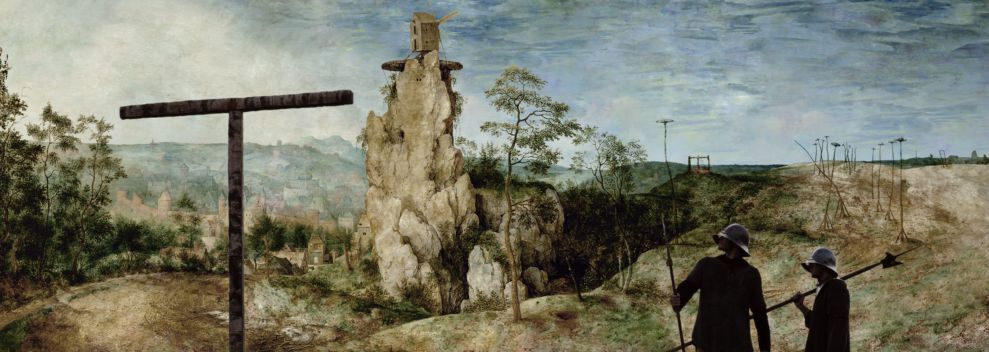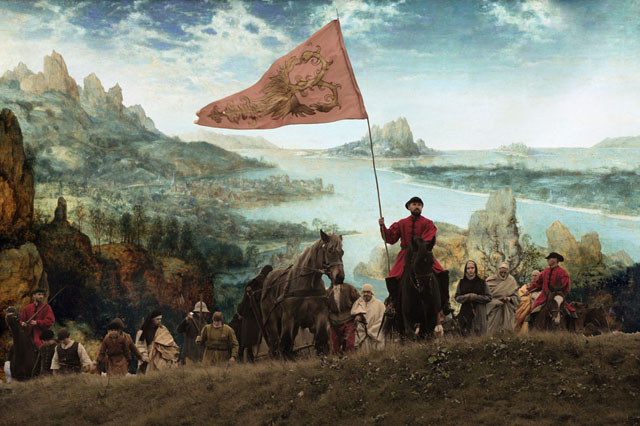The Wapping Project is an old hydraulic power station constructed in 1890, situated in East London, converted in a culture venue as well as in an alternative restaurant serving a daily changing menu.
The so called Wapping Food is more than the typical café you can usually find alongside galleries, offering coffee and tea to the exhibition-goers and art passionate.
In fact the space is fundamental as an economical support for the gallery, considering that the venue doesn’t receive any government funding and that it was converted without the gain of any money lottery. On the side of those economical reasons, the restaurant has a crucial role in grabbing the attention of a large variety of audience, which may happen to be there without being aware of the intriguing artistic corner hidden in the back of the main room. The Wapping Project can be seen as an opportunity to show and demonstrate in a suggestive way the historical post-industrial setting nature of the East Thames.

Moving Walls is a video installation by a renowned Polish poet, writer, artist and filmmaker called Lech Majewski. His artworks have been recently displayed in some of the world’s most famous art events such as the Venice Biennale.
This is the artists’ first solo performing in London, despite having an impressive track record which includes screenings at the Berlinale, Louvre and Whitechapel gallery and a recent solo show at New York’s MoMa.

Lech Majewski studied at the Krakov Academy of Fine Arts, he graduated in Poland from the National Film School based in Lòdz and in 2000 he became a voting member of the European Film Academy.
Edited by Matilde Casaglia
Artworks by Lech Majewski http://www.lechmajewski.com









